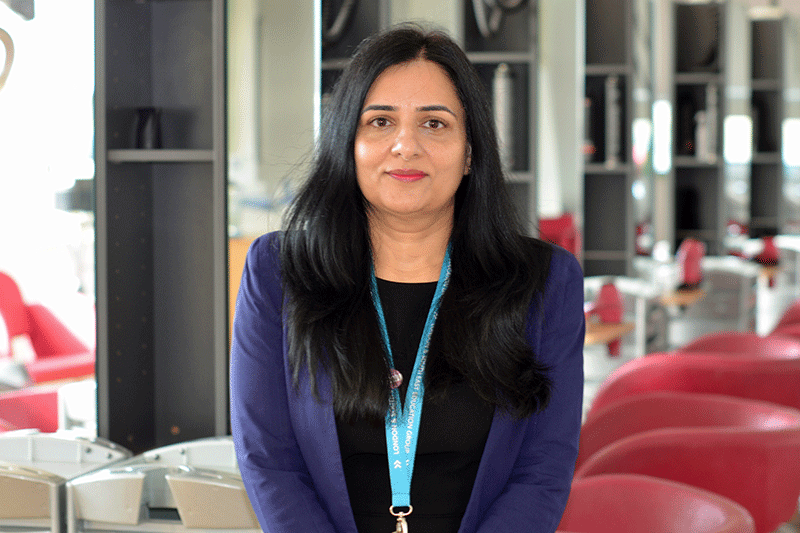The return of public exams for the first time since 2019 has been difficult period for all young people – particularly as many have never been through the examination process before, but also because mitigation and marking arrangements have meant a level of uncertainty has persisted.
For those with special educational needs and disabilities – and for the staff who work with them – these challenges have been even greater.
Exam accessibility issues are wide-ranging and can be complex. We want to ensure no student is disadvantaged due to a specific disability when sitting exams, but this is not always easy – not least when students move from school to college.
Students and their families are often unaware when they arrive at college that their exam arrangements are not simply rolled over from school. In fact, there is no guarantee that they will qualify for the same arrangements.
In addition, our SEND teams have to start from scratch in terms of assessing and establishing specific needs. These are needs that are likely to have been known and understood throughout the student’s time at school – but must be completely reassessed when joining further education.
With different awarding bodies having different requirements, this assessment can be a complex process. Evidence needs to be gathered and submitted, which takes time and runs the risk of delayed exam access arrangements. This can result in a frustrating and indeed unfair disadvantage for the student, which we must avoid.
And even once access arrangements are in place, for example if extra time is granted, some young people with ASD will still not be able to finish in the given time frame. This could mean they don't succeed, even though they may be technically capable of understanding and correctly responding to the question being asked.
So how can we ensure that no young person is disadvantaged when it comes to exams?
In terms of practical, on-the-ground solutions, our staff carry out comprehensive assessments of students and apply for a range of access arrangement adjustments as soon as possible. It’s essential to have access to curriculum exam dates so specific planning can be done – but this can be challenging with more ‘on-demand’ vocational exams.
Giving students opportunities to practice adjustments to ensure best outcomes in exams is also important – whether that’s how to use extra time, a reader and/or a scribe. Lessons must be planned carefully and a careful choice of papers is required to meet the needs of ASD students.
We support with resources such as adjustable tables, enlarged fonts and easels as well as providing quiet ‘chill-out’ areas on exam days to help anxious students relax. We also ensure we have an emergency overflow room for any student experiencing unexpected anxiety episodes prior to exams.
Our Learning Support Assistants provide extra help, especially if students don’t have access to a parent or carer at home. We also ensure new staff across the college are supported to work consistently and collaboratively with our learning support team and exams department.
Crucially, this support has to start at application and enrolment stage. We need to encourage students to declare any need from day one so that we can get the right support in place promptly. Staff have to be well-trained to understand the information and evidence that is needed for exam boards.
Presently, all of this relies too heavily on colleges and their staff. The future of assessment must take accessibility as a core tenet, and that means providing more consistency centrally to help our students access exams fairly and efficiently. A JCQ/DfE database containing information about every student’s access arrangement in school – accessible to any young person’s educational provider – would be a great start.
This would enable our specialists and our exam teams to see every student's history of need from day one. We could then ensure the right arrangements are in place from the very start, which would go some way to levelling the playing field for SEND students taking exams.
Asfa Sohail, Executive principal and chief learning officer, London South East Colleges
This story first appeared in FE Week 3 September 2022
SN
First published in Schools Week on 1 April 2022.

